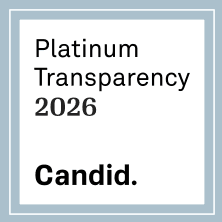
What is "zero waste"?
Zero waste is when everything is healthy food for something else
Peer-reviewed definition:
The conservation of all resources by means of responsible production, consumption, reuse, and recovery of products, packaging, and materials without burning and with no discharges to land, water, or air that threaten the environment or human health.

Zero Waste International Alliance
Let's break that down…
"The conservation of all resources…"
Trash itself isn’t necessarily the problem; the issue is that we continue to extract, consume, and then dump materials without confronting the reality that we don’t have endless resources. This process is doing real damage to human and environmental health.
"…by means of responsible production, consumption…"
When we throw something away, the waste we see is just a small moment in a much larger story. 90% of a product’s environmental impact happens before you even open the package. That’s because each new thing requires all kinds of extraction, shipping, refining, and packaging before it even lands in the store.
Real solutions to the waste crisis focus on reducing consumption in the first place and using only resources we have already extracted. Zero waste is not about "throwing away better," but rather eliminating the need to constantly produce new things.
"…reuse, and recovery of products, packaging, and materials…"
We focus on waste because it’s the most tangible representation of our ongoing extraction. Individuals and local communities have the power to consume less by reusing or repairing products that already exist.
"…without burning and with no discharges to land, water, or air that threaten the environment or human health."
70% of global greenhouse emissions come from our food and stuff. Extracting, transporting, manufacturing, storing, using, and disposing of things that end up in landfills are huge drivers of climate change… which means they hold equally huge opportunities to address the climate and environmental crisis.
Zero waste often gets framed in terms of “diversion rate,” or how much material can we send somewhere besides a landfill. The danger of this is that it hides the much more beneficial strategies like reusing, using less, using gentler, using longer, and—most importantly—not using at all.
No amount of diversion is going to solve the waste crisis. We need to stop producing waste (even if it’s compost or recycling) because most of the negative impact we’re hoping to avoid happens during production, not during waste management.
The most environmentally friendly product is the one that never gets made.
© 2025 Live Zero Waste Inc.
